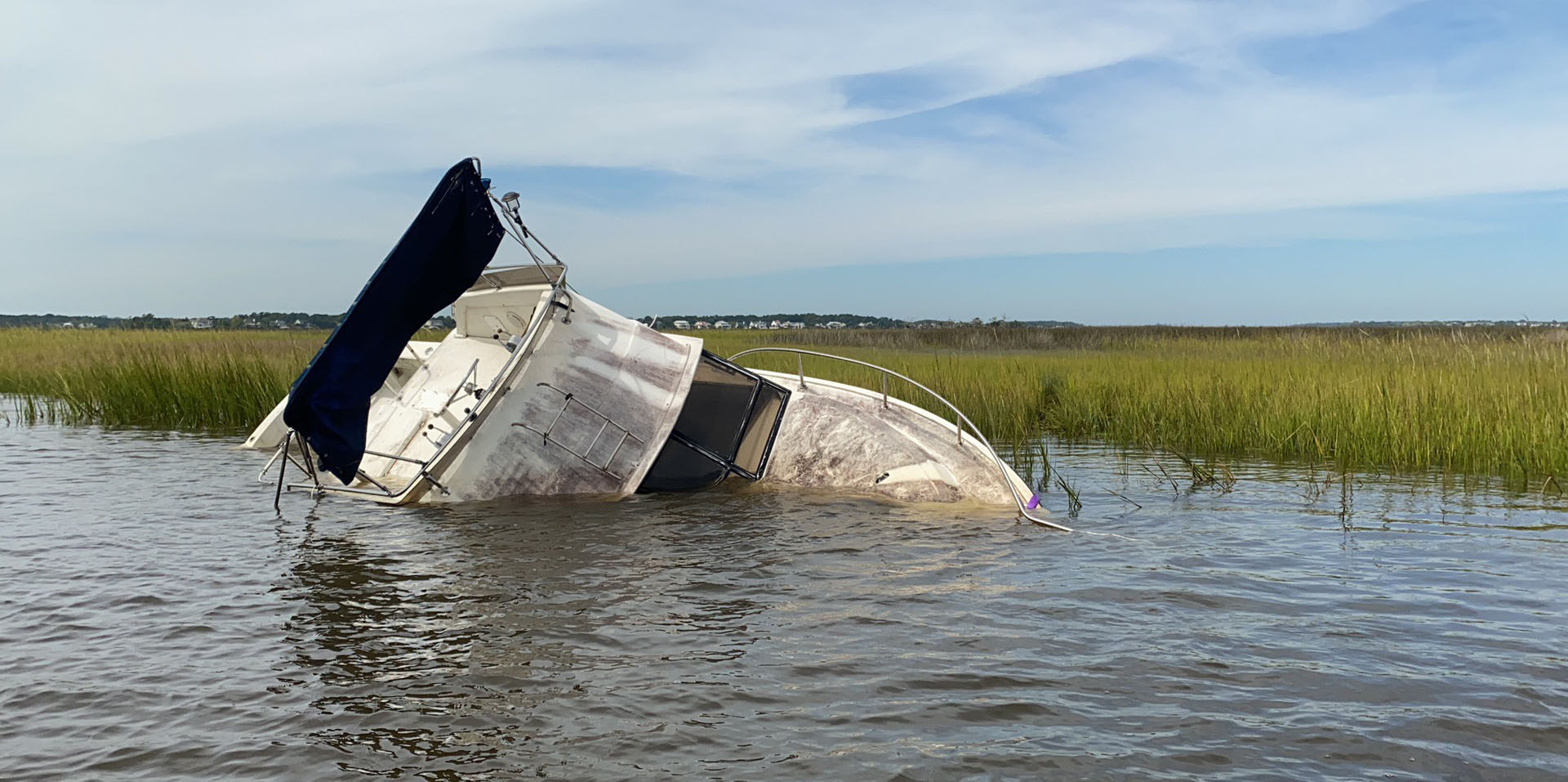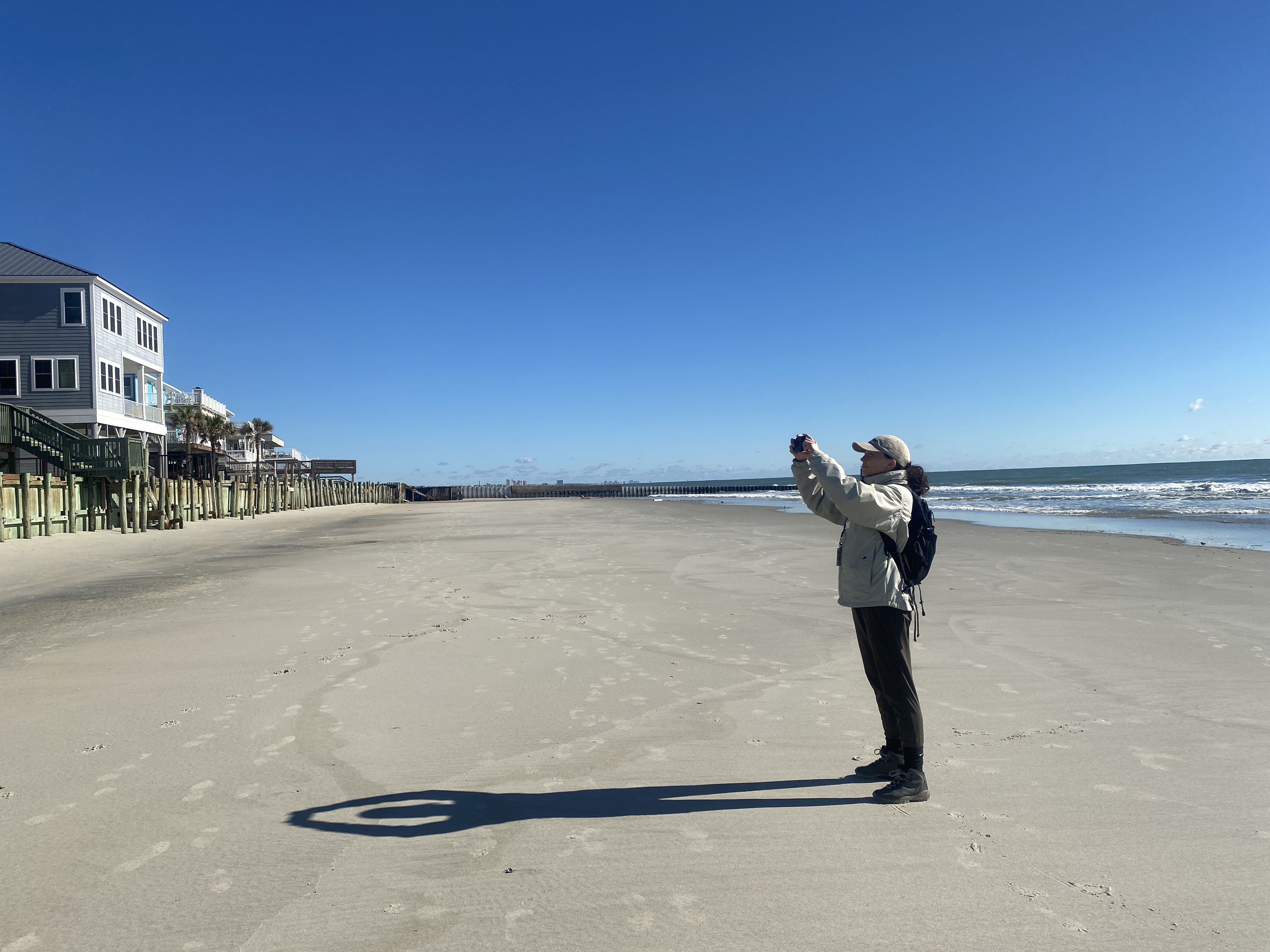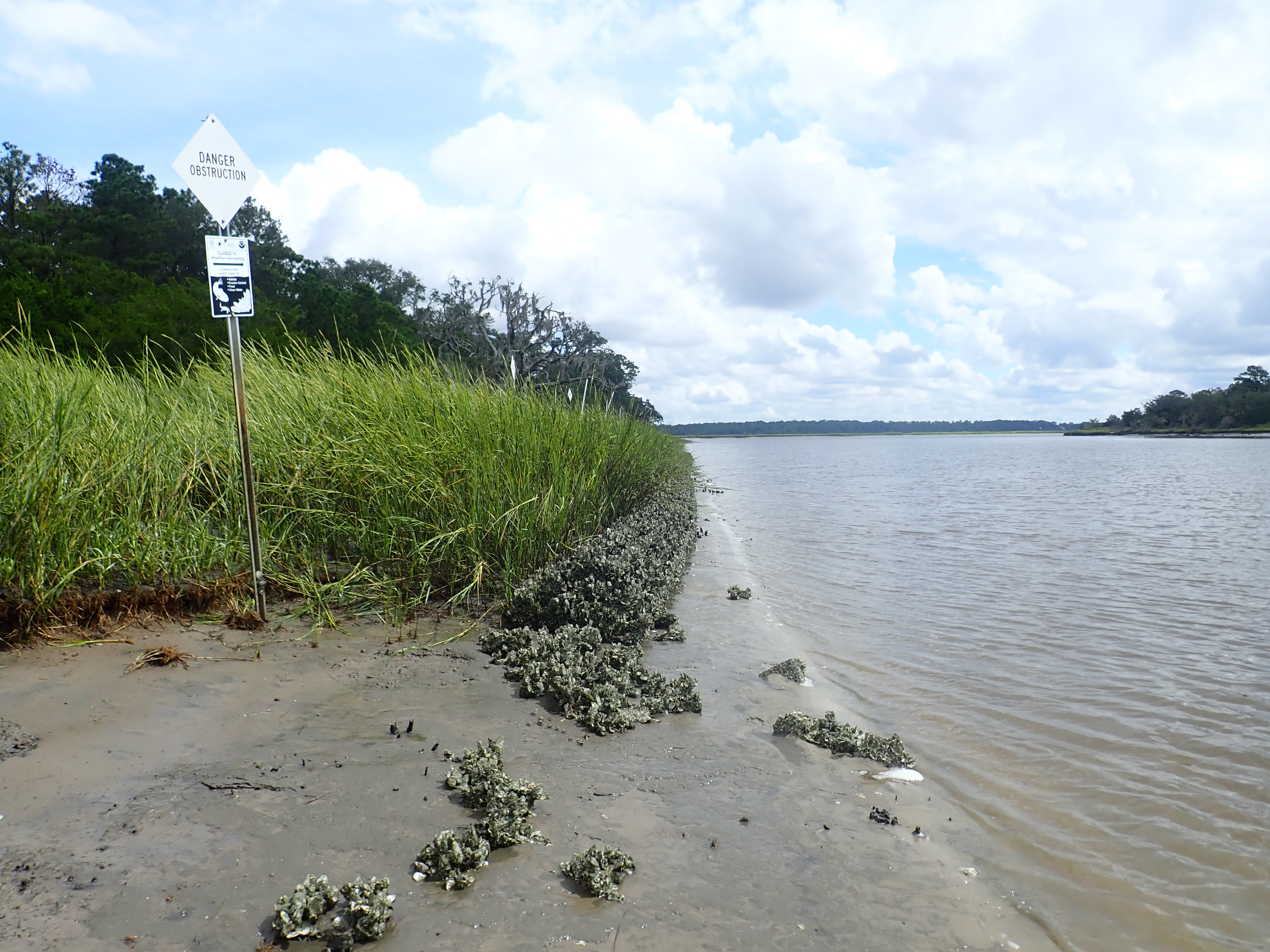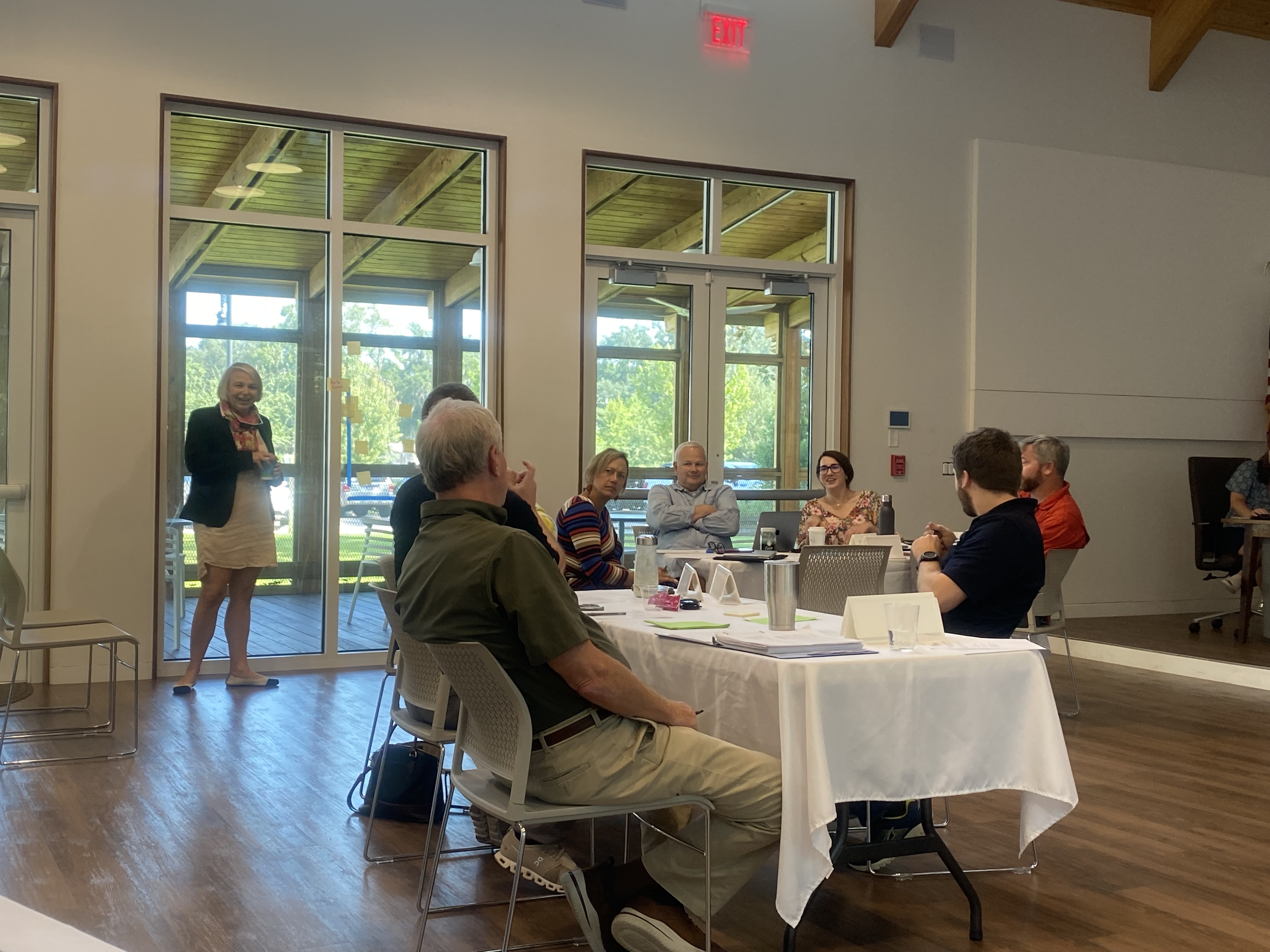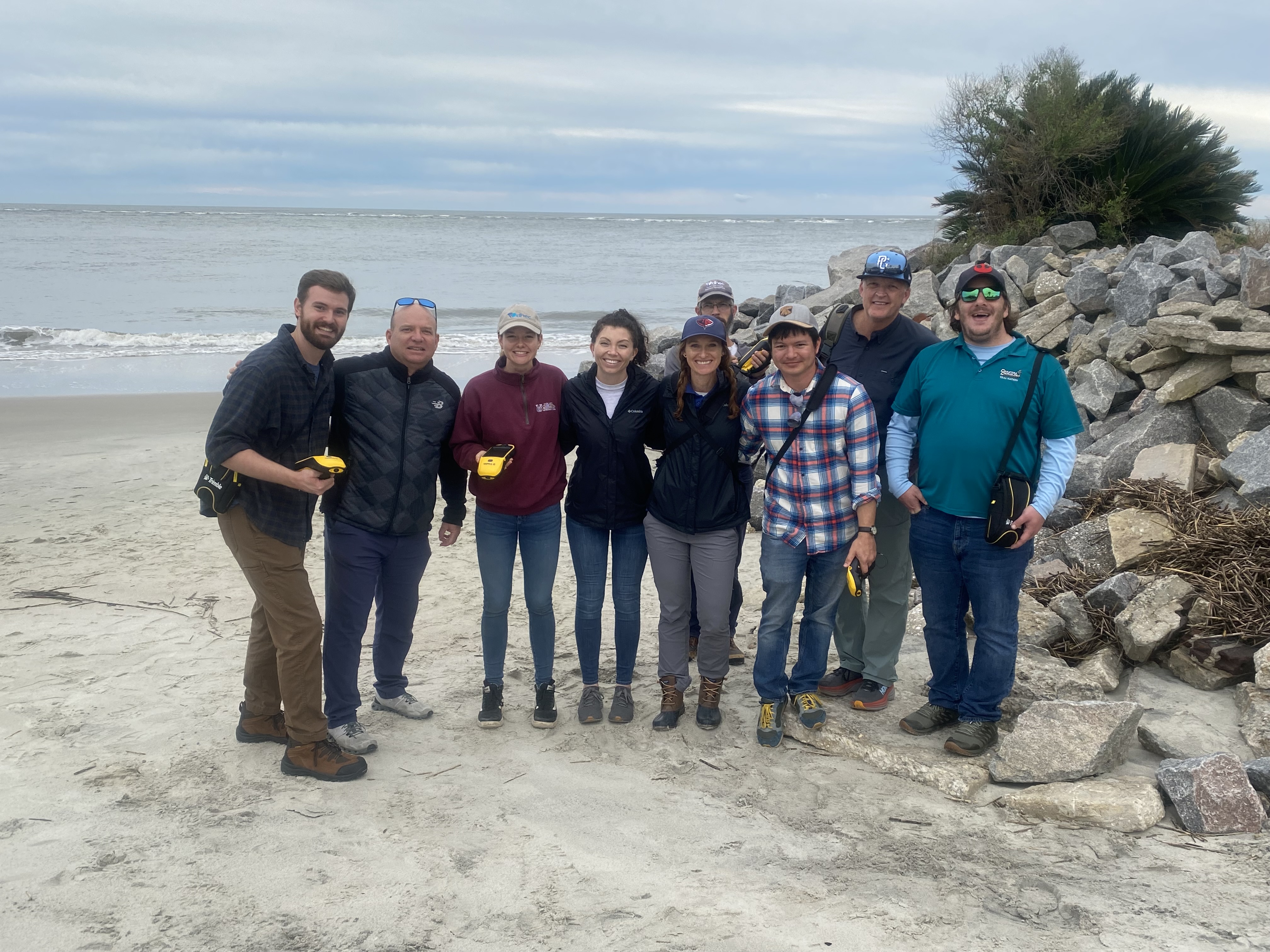Section 309 Coastal Program Assessment and Strategy Development
Section 309 of the Coastal Zone Management Act, the Coastal Zone Enhancement Program, encourages state and territorial coastal management programs to strengthen and improve their federally approved programs in one or more of nine areas. The South Carolina Coastal Zone Management Program, housed within DHEC OCRM, undergoes an associated self-assessment every five years to identify enhancement opportunities within each of the nine enhancement areas. Based on assessment results and stakeholder feedback, coastal programs develop strategies for high priority enhancement areas. The Coastal Services section assists with the Section 309 coastal program assessment, as well as strategy development and implementation for the State’s Coastal Management Program. Recent DHEC OCRM 309 strategies have focused on coastal hazards, marine debris, and wetlands enhancement areas.
2021-2025 Section 309 Strategies
DHEC OCRM is currently implementing two, multi-year strategies which are outlined in the South Carolina Coastal Management Program’s Section 309 Assessment and Strategy for 2021-2025. The priority enhancement areas associated with these strategies are Coastal Hazards and Marine Debris.
Marine Debris
DHEC OCRM is currently working through a five-year Marine Debris strategy with an emphasis on prevention of Abandoned and Derelict Vessels (ADV) along the South Carolina coast. In addition to engaging stakeholders and partners through the South Carolina ADV Working Group, key efforts associated with this strategy include:
- Piloting a Vessel Turn-In Program (VTIP) in coastal South Carolina,
- Replicating a Fiberglass Vessel Hull Recycling Program initially piloted in Rhode Island, and
- Developing a coastwide ADV Database utilizing the MyCoast South Carolina platform.
Coastal Hazards
A multi-year Coastal Hazards strategy is also underway with two high-priority goals:
- improving data collection and data sharing capabilities associated with DHEC OCRM’s Emergency Operations Program by utilizing ESRI applications and upgrading aging GPS equipment for field data collection; and designing a tool to improve communication and information sharing with local governments
- updating, enhancing, and expanding the use of DHEC OCRM’s Coastal Atlas, which will serve as an outreach tool to assist the public with accessing critical data and information associated with South Carolina beachfront areas.
2016-2020 Section 309 Strategies
During the 2016-2020 enhancement cycle, DHEC OCRM implemented two, multi-year Section 309 strategies. The priority enhancement areas associated with these strategies included Wetlands and Coastal Hazards.
Wetlands
In 2016, DHEC OCRM embarked on a five-year Wetlands strategy to develop a regulatory definition and project standards for living shorelines in South Carolina. The goal of the strategy was to allow for a more efficient authorization process for living shorelines and to help ensure a project’s design would accomplish its intended goals. The new regulations, developed in accordance with the South Carolina Administrative Procedures Act and passed by the General Assembly in 2021, were based on lessons learned from a collaborative research project, as well as stakeholder feedback through the South Carolina Living Shorelines Working Group. Additional strategy outcomes included development of a South Carolina Living Shorelines Website in collaboration with Clemson Extension, and development of a South Carolina Living Shorelines Explorer Application in collaboration with The Nature Conservancy.
Coastal Hazards
DHEC OCRM is leveraging its existing relationships with coastal municipal governments through its Local Comprehensive Beach Management Plan (LCBMP) planning process to integrate Community Rating System (CRS)-based principles into the guidance and procedures for updating LCBMPs. DHEC OCRM established the Coastal South Carolina CRS Users Group to provide a forum for coastal communities to share lessons learned, identify best practices, and gain efficiencies in planning processes that result in hazard mitigation and realized cost savings. In 2018, DHEC OCRM contracted with The Nature Conservancy (TNC) to develop the Community Rating System Explorer App for coastal communities in South Carolina.
Regulation Development
DHEC develops regulations in accordance with the South Carolina Administrative Procedures Act (“APA”), S.C. Code Section 1-23-10 et seq. Regulation development actions include promulgating new regulations, amending existing regulations, and repealing existing regulations. The Coastal Services section supports DHEC OCRM regulation development through stakeholder engagement, coordination of the APA process, and legislative communication.
Beach Preservation
In 2022, DHEC OCRM convened a Beach Preservation Stakeholder Workgroup to identify recommendations as the State implements a policy of beach preservation. Based on recommendations and key findings from the Workgroup, DHEC OCRM will be proposing regulatory amendments to provide a definition for beach preservation and clarify beach preservation approaches, standards, and requirements for activities in any critical area along or adjacent to the beach.
Living Shorelines
In 2021, the South Carolina General Assembly passed regulations that include a definition and project standards for living shorelines. The regulations were based on lessons learned from a collaborative research project, which involved monitoring existing living shoreline installations, as well as installing and monitoring new and existing technologies under a range of conditions in the estuarine environment. Prior to regulation development, DHEC OCRM also gathered feedback from stakeholders through the South Carolina Living Shorelines Working Group.
Jurisdictional Lines
In May 2018, Act 173, the Beachfront Management Reform Act, was signed by Governor Henry McMaster. Act 173 required DHEC to promulgate regulations to implement provisions of the act. To initiate input into the regulatory development process, DHEC convened a Beachfront Jurisdictional Line Stakeholder Workgroup in 2018 and 2019. Regulatory amendments, based on final recommendations of the workgroup and associated public engagement and input, were developed to provide clarity and standards to be utilized in the establishment of the state’s beachfront jurisdictional lines and to modify specific procedures related to appeals and movement of the jurisdictional lines to comply with statutory requirements.
Internal Training and Operational Assistance
The Coastal Services section supports DHEC OCRM staff and programs by assisting with process evaluation and improvement, development of standard operating procedures, and staff training to achieve greater operational efficiency and consistency. To support regulatory requirements associated with post-disaster damage assessment, the Coastal Services team maintains standard operating procedures and staff training programs associated with DHEC OCRM Beachfront Structural Inventory and Damage Assessment field data collection and processing.
